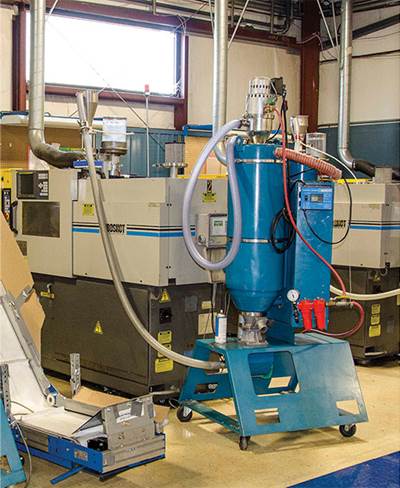Engineering Resins
Additive Manufacturing: Materials for ‘Real-World’ Parts
Developments in materials have helped pave the way for processors to make ‘real world’ parts from what is collectively known as 3D printing. Here’s a comprehensive review of the materials available.
Read MoreStudy Ranks Phthalates, Alternatives for Medical Devices
Now there's a clearer understanding of how a specific change of plasticizer may impact the performance of a non-PVC medical device.
Read MoreAPPLICATION: Polycarbonate Adds Style to Electric-Car Charging Stations
Two tough, flame-retardant PC grades lend style and ease-of-use to new electric-car charging stations.
Read MoreMaterials News at K 2013
There was no shortage of interesting materials developments at K 2013, in particular high-performance engineering thermoplastics and thermoplastic composites—much of them geared to automotive/transportation.
Read MoreADDITIVE MANUFACTURING: Slew of New Developments in Materials, Equipment
Three companies unveiled new developments in additive manufacturing and prototyping as 2013 came to a close, a testament to this technology's vibrant growth.
Read MoreMATERIALS: Invista Starts Pilot Nylon 12 Production
A new producer with its own unique precursor adds security to nylon 12 supply.
Read MoreDuPont Spins Off Fluoropolymers, TiO2
DuPont Co., Wilmington, Del., intends to separate its Performance Chemicals segment into a completely separate company about 15 months from now.
Read MoreCommodity Resin Prices Up, Engineering Resins Steady
Strong year-end demand, somewhat tighter supplies of polyolefins, and a spike in feedstock prices with the possibility of more to come for PS, PVC and PP, have already brought higher prices to commodity resins, and continuing upward pressure will likely generate further hikes. Meanwhile, despite strong demand in the automotive market, prices of the four largest-volume engineering resins have been flat or slightly lower.
Read MoreMelt Flow Rate Testing—Part 6
Once degradation has been established, the discussion inevitably turns to how it happened. It might be expected that the answer to this question is widely known. Not so. The good news is that the influences that cause polymer degradation during processing are few.
Read MorePlastiComp & DSM Developing Biobased Long-Fiber Composites
WEB EXCLUSIVE: PlastiComp, Inc., Winona, Minn., has entered into a partnership with DSM Engineering Plastics (U.S. office in Birmingham, Mich.), to develop biobased, long-fiber thermoplastic (LFT) composite materials for automotive and other performance-driven markets.
Read More















